2025 Organizing Committee
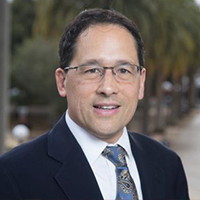 | Symposium Chair: Eugene and Gloria Bauer Professor of Dermatology, Associate Director of the Center for Definitive and Curative Medicine, and the co-director of the Child Health Research Institute | Anthony E. Oro, M.D., Ph.D., is the Eugene and Gloria Bauer Professor of Dermatology, Associate Director of the Center for Definitive and Curative Medicine, and the co-director of the Child Health Research Institute. He is co-founder of the Program in Epithelial Biology, and an active member of the Institute for Stem Cell Biology and Regenerative Medicine, Children’s Health Research Institute, Bio-X, and the Program in Cancer Biology. His research interests encompass cancer genomics and tumor evolution, stem cell biology and hair/skin development and regeneration, and definitive molecular and cellular therapeutics. His clinical interests include hair biology, non-melanoma skin cancer, and stem cell-based therapies for genetic skin diseases. |
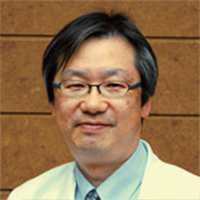 | Symposium Co-organizer: Professor and Chair, Department of Dermatology, Keio University | Masayuki (Masa) Amagai, M.D., Ph.D. is Professor and Chair, Department of Dermatology, Keio University School of Medicine, and Dean, Keio University School of Medicine. He is also Team Leader, Laboratory for Skin Homeostasis, RIKEN Center for Integrative Medical Sciences. He did a postdoctoral fellowship at Dermatology Branch, NCI, NIH with guidance of Dr. John R. Stanley. Dr. Amagai has served professional societies in leadership positions including as President of Japanese Society for Investigative Dermatology (2012-14), and President of Japanese Dermatological Association. He is an International Member of the National Academy of Medicine USA. |
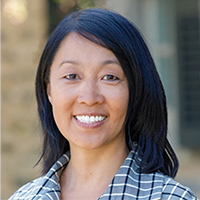 | Symposium Co-organizer: Herbert and Florence Irving Professor and Chair of Dermatology, Columbia University | Dr. Payne is the Herbert and Florence Irving Professor and Chair of Dermatology at Columbia University Irving Medical Center. She received her BS degree in Biology from Stanford University and an MD/PhD degree in Molecular and Cellular Biology from Washington University School of Medicine, followed by dermatology residency and postdoctoral fellowship training at the University of Pennsylvania. Dr. Payne is the 2024-2025 President of the Society for Investigative Dermatology and is a member of the American Society for Clinical Investigation, NIH/NIAMS Advisory Council, and International Pemphigus and Pemphigoid Foundation Medical Advisory Council. She also serves as co-chair of the Scientific Advisory Board at Cabaletta Bio, a company she co-founded to enable the first precision cellular immunotherapies for autoimmunity to enter human clinical trials. |
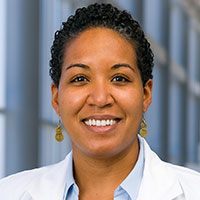 | Symposium Co-Director: Tamia Harris-Tryon, M.D., Ph.D. Assistant Professor, | Tamia Harris-Tryon, M.D., Ph.D., is an Assistant Professor in the Department of Dermatology at UT Southwestern Medical Center. Dr. Harris-Tryon earned her combined medical and doctoral degree in cellular and molecular medicine at The Johns Hopkins School of Medicine and completed a residency in dermatology at The Johns Hopkins Hospital, before joining the UT Southwestern faculty in 2014. Dr. Harris-Tryon’s research focuses on the organisms that reside on the surface of the skin – collectively termed the “microbiota” – and how they impact the skin’s immune system. Her work is supported by the Burroughs Wellcome Fund, UT Southwestern, and the Dermatology Foundation. In 2019, she earned the American Academy of Dermatology’s Young Investigator Award. |
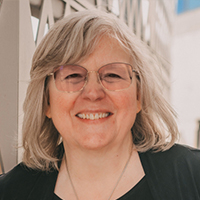 | Symposium Co-Director: Sancy Leachman, M.D., Ph.D. | Dr. Leachman completed a Dermatology Residency and a Research Fellowship in Dermatologic Oncology at Yale School of Medicine in 1998. She was recruited to the University of Utah following completion of her training, where she served as Professor of Dermatology and Director of the Melanoma and Cutaneous Oncology Program at Huntsman Cancer Institute until 2013. She was then recruited to become Chair of the Department of Dermatology at OHSU and Director of the Melanoma and Skin Cancer Research Program at Knight Cancer Institute until 2025, when she was recruited back to the University of Utah to serve as Vice-Chair of Faculty Development. Dr. Leachman’s clinical practice focuses primarily on skin cancer, melanoma, and genetic syndromes that increase the risk for skin cancer or other internal malignancies. She is a strong advocate for skin screenings, patient education and community outreach and has led statewide efforts in Oregon to improve early diagnosis of melanoma to reduce death due to this disease. Her research has focused on melanoma in the basic science lab, through translational human studies/trials, and in the public health arena. When not tending to patients, Dr Leachman loves spending time with her husband, son, and daughter. She also loves to make yogurt and sourdough bread and can be found hiking regularly in Toll Creek Canyon with her dogs. |
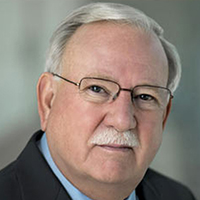 | Symposium Co-director: Dennis Roop, Ph.D. | Dennis Roop, Ph.D. is a professor of dermatology and the director of the Gates Center for Regenerative Medicine at the University of Colorado’s Anschutz Medical Campus. Roop is one of the first investigators to begin using molecular techniques to study how the skin forms during normal embryonic development. He has identified many of the genes required for normal skin development and discovered that defects in some of these genes cause inherited skin diseases characterized by a very fragile skin, which blisters easily and may result in neonatal death. His current, primary research focuses on generating induced pluripotent stem (iPS) cells from patients with inherited skin diseases, genetically correcting these cells and differentiating them into a skin stem cell lineage, which can be returned to the same patient. This seminal research led to the 2016 formation of the EB iPS Cell Consortium with research teams from Colorado, Stanford and Columbia Universities uniting to fight the rare and debilitating genetic skin blistering disease Epidermolysis Bullosa (EB).
|
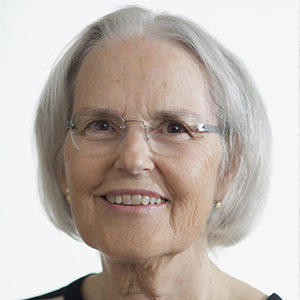 | Symposium Director Emerita: Molly Kulesz-Martin, Ph.D. | Molly Kulesz-Martin, Ph.D., has directed the Montagna Symposium on the Biology of Skin since 2004. During her 16-year directorship, over 1,700 scientists and clinicians have gathered at this historic meeting for presentation and discussion of the latest findings in skin and skin-related research, and over 150 young investigators have received travel awards to attend and present at the meeting. Dr. Kulesz-Martin, an expert in squamous cell carcinogenesis, trained at Roswell Park Cancer Institute and NCI.
In her early career, Dr. Kulesz-Martin established the first colony-based cell transformation assay of primary cultured murine epithelial cells and developed one of the few clonal lineage models of initiated, benign, and malignant and metastatic keratinocytes/squamous cell carcinoma. Recruited to OHSU in 1999, Dr. Kulesz-Martin led the Dermatology Research Division expansion from 1 to 7 primary and joint basic/translational science faculty.
As founding director of an IRB-approved tissue and clinical data repository founded in 2001 (Molecular Profiling Tissue Resource), Dr. Kulesz-Martin fosters collaborations at OHSU and beyond by providing primary epidermal and mucosal cell cultures, fresh frozen tissues of inflammatory lesions and cancers, and an outcomes database for research. |